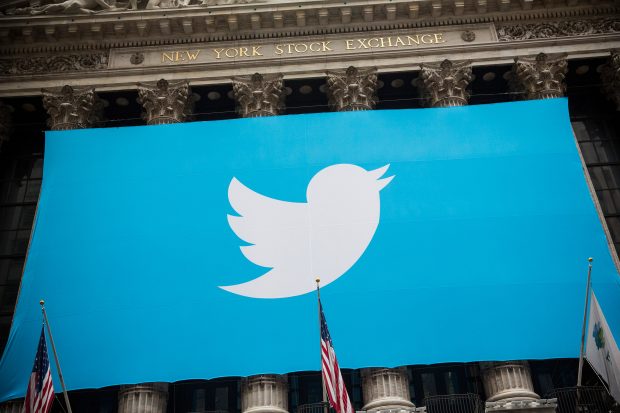Can Twitter be worth more than Deutsche? On Tuesday, as rumours swirled of possible bidders for the microblogging site, the market was valuing it at $20 billion, compared to $18 billion for the troubled German bank. That might be a reasonable assessment of their relative prospects, or it might be confirmation that social media valuations are always bonkers. You’ll gather from my tone that I’m no Twitter devotee, and am unconvinced by its attractions as a business: it has never made a profit in a decade of existence, has plateaued at around 300 million users (Facebook has 1.7 billion), done little to develop its original offering beyond attracting a global army of trolls, and is threatened by hot competitors such as Snapchat.
But none of that has deterred Disney, Google and the cloud-computing giant Salesforce from lining up as potential buyers. Nor has the history of now-forgotten sites such as Bebo (sold to AOL for $850 million) and MySpace (sold to Rupert Murdoch for $580 million) that evaporated to near-zero values within a five-to-seven year lifecycle. Likewise Yahoo’s $1.1 billion acquisition of Tumblr in 2013 (which I said then ‘may not end well’) has had to be heavily written down as its performance has disappointed. Microsoft’s more recent $26 billion purchase of LinkedIn — a relatively durable site for business contacts, in contrast to Twitter’s ephemeral tittle-tattle — remains a test case, and is evidently being used as a price benchmark by Twitter’s adviser, Goldman Sachs.
Google (through its holding company Alphabet) has oodles of cash in hand, plenty of reasons to covet the goldmine of personal data held by Twitter and an appetite for off-the-wall acquisitions: it can point to the success of YouTube, which it bought for what many thought a way-too-high $1.6 billion in 2006. Disney, meanwhile, apparently sees potential synergies between Twitter and its sports channel ESPN, and covets Twitter’s younger user base.
But experience suggests, as I’ve said before, that in this arena it’s far better to be the selling founder than the buying giant: so (in a headgear-themed column this week) I doff my cap to Jack Dorsey, Evan Williams and the original Twitter crew, who stand to collect billions between them. But I can’t be bothered to tweet about it.
This is an extract from Martin Vander Weyer’s ‘Any Other Business’, which first appeared in this week’s Spectator







Comments